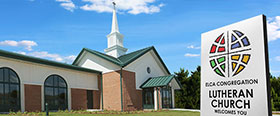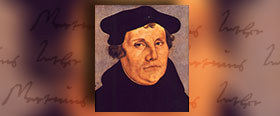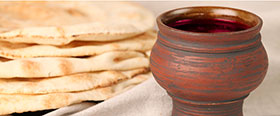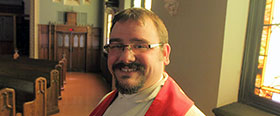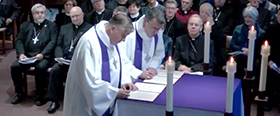Kate Warn

The Rev. Kate Warn
The Rev. Kate Warn is the country coordinator for the ELCA’s new Young Adults in Global Mission program in Rwanda. To support Kate, or another of the ELCA’s over 240 missionaries in the global church, click here.
Dear Brothers and Sisters in Christ,
Lenten greetings from Kigali, Rwanda! I arrived here six weeks ago to work with the Lutheran Church in Rwanda for the next four years and to establish a new country program for Young Adults in Global Mission (YAGM) through the ELCA. My primary work these days is to prepare for the August arrival of six young adults from the U.S. who will live and work in Rwanda for one year. At times this schedule seems a bit daunting considering that everything is new for me, but Rwanda will be the ninth country/region for the YAGM program, so I know it is possible.
Rwanda is a small, landlocked country in east Africa, bordered by Tanzania, Uganda, Burundi and Congo. The nation is densely populated with a high percentage of subsistence farmers eking out a living in a mountainous terrain of great beauty. This is a land of coffee and tea, bananas (many varieties and nothing like those we eat in the U.S.), pineapples, and various other tropical fruits. Traditionally, dairy cattle have been a significant part of Rwandan culture, and this gives me occasion to talk about my grandfather’s dairy farm and my own western New York roots. During my travel I have been served many cups of tea with milk, as well as cups of hot milk with tea! I am told that the male YAGM’s living in rural areas here will learn to milk cows. I am further told that it is not culturally appropriate for women to milk cows. (Already I am thinking that the young adults from the U.S. will have interesting conversations about such things!)
My home base is in Kigali, a remarkably modern and rapidly growing capital city. So far, electricity, water and Internet have been consistently available (98 percent) and I am grateful for that!
In conversations over the past few weeks, I have often heard the phrases “before the genocide” and “after the genocide.” This April will mark the 20th anniversary of the Rwandan genocide in which up to 1 million people were killed in 100 days. The reality of the genocide colors everything here and shapes the nation’s commitment to peace and reconciliation, unity and development. Rwanda’s recovery and development since 1994 are indeed remarkable and there is a sense of hope among the people, even as remembering the past is a source of deep pain.
As I begin to settle into a new life in Rwanda and begin to learn the language, the culture and the history, I’ve had a sense that living here means living with many questions. How could genocide happen? How could the international community abandon Rwanda to such horrors? How does a nation recover from such trauma? What was, and what is the role of the church in all this? What does forgiveness mean?
What I know at this point is that there is much to learn and there will be many stories to tell as I live these and other questions. I welcome prayers, comments and your questions for the journey.
In Christ’s peace,
Pastor Kate Warn
Kigali, Rwanda

